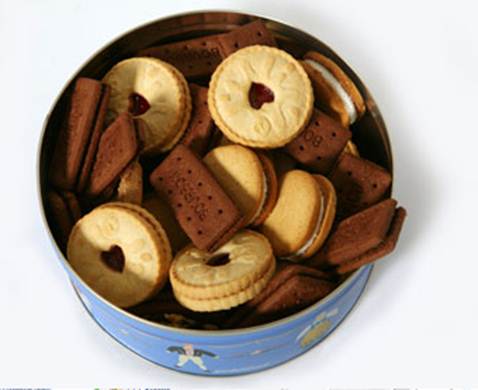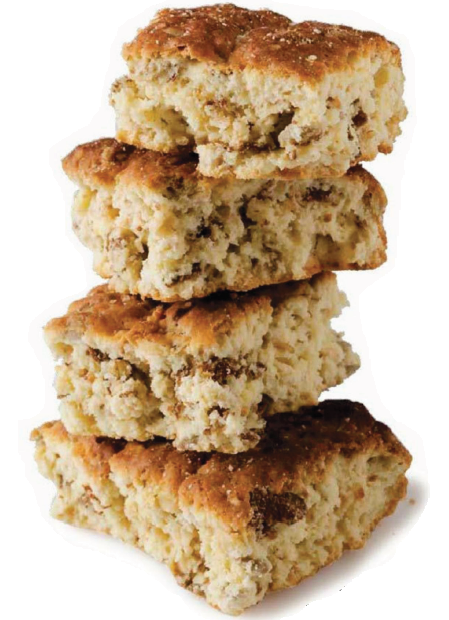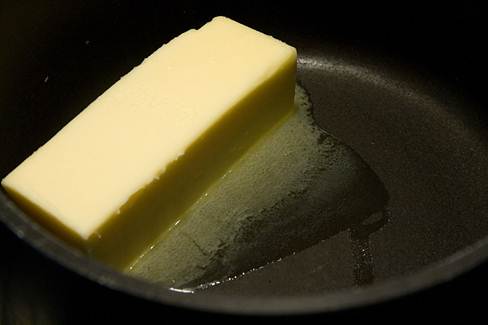While fancy biscuits and elaborate cakes may
make her heart beat faster, it’s the humble rusk that tugs at Sam Woulidge’s
Heartstrings
My fondest memories of my Aunty Elaine, or
Tannie Laina as I called her, are of cuddling up in her bed on cold Port
Elizabeth mornings when I was about six years old. We would drunk rusks and she
would share her coffee with me by pouring some into a saucer to allow it to
cool. She would also tell me the story of Racheltjie de Beer and how she gave
her life to save her little brother by lying in the entrance of a hollowed
anthill while he lay protected on the inside one freezing cold Free State
night. She would also recite Afrikaans poetry to me. Eugene Marais’ “Mabalel”
about the young maiden who was eaten by a crocodile, that was alerted to her
presence, by the tinkling of her ankle bracelets. And she would always end with
the poem that made me cry the most, AG Visser’s “Amakeia”, a story set in the
Sixth Xhosa war that tells of the Xhosa woman who died protecting the white
child in her care.

biscuits
I don’t know why I like lying in my aunt’s
bed, drinking lukewarm milky coffee, crying at the sad stories she told me. But
I felt safe and protected. And perhaps in some way I knew that the stories she
told were significant because they made me feel sad; because she wanted to
awaken in me a spirit of compassion.
As an adult, I try to steer clear of the
tragic stories, because they make me so unbearably sad, but I do like to dunk
rusks into my coffee or tea. Doing so makes me enormously happy. I don’t even
mind the dregs at the bottom of the cup. I like taking my first bite out of the
rusk while it is still dry, to feel it crumbling in my mouth, but the second
bite is always the dunked one. Rusks are perfect breakfast fare, not too sweet,
not too fatty, not too fussy, just something to still the early-morning hunger
pangs. Rusks are for hurried weekday mornings, lazy weekend lie-ins, and
holidays slouching around in your pyjamas, drinking pots of tea.
In our family, the most important part of
preparation for the annual pilgrimage to the sea was baking the rusks. My mom
would spend days baking and drying and drying rusks that would be stored in
large plastic tubs. It always seemed as if we would never be able to finish
them all, but they never lasted the whole holiday. It was just too enticing to
walk past the tub and grab a handful on your way out.
They were also perfect for innocent
nocturnal teenage visits, which always involved coffee and some light
flirtation. Or those lazy mornings when you were in no hurry to pull on your
costume and head off to the beach, when a book and a rusk held more allure. But
today, years later, I am baking rusks for Aunty Elaine’s grown-up grandchildren
who are coming to stay. I have also printed out a copy of the two poems she
taught me for them. In memory of her. And because I think she would have liked
that.
Ria du Plessis’ Beskuit
Ria du Plessis was the mother of Andre, a
schoolfriend of my older cousins, Heleen and Lizbe. When Andre came to visit
them, he would always arrive with boxes of these rusks.

Ria
du Plessis’ Beskuit
Make 40 to 45 rusks
Easy
Great value
Preparation:
20 minutes
Baking: 35
minutes, plus drying time
·
Self-Raising flour 1 kg
·
Baking powder 1 t
·
Salt a pinch
·
Brown sugar 200 g
·
All-Bran Flakes 300 g
·
Free-range eggs 3, beaten
·
Buttermilk 2 cups
·
Butter 500 g, melted
- Preheat the oven to 1800C.
Sift the flour, baking powder and salt together. Add the eggs, buttermilk
and melted butter. Mix well. There’s no need for fancy equipment, and old
salad bowl and a clean pair of hands is all you need.
- Place the mixture onto a large silicone
baking sheet on a baking tray, pat into a rectangle and bake for 30 to 35
minutes, or until a skewer inserted comes out clean.
- Allow to cool. When cool, cut into
medium-sized rectangles, reduce the heat to 500C and return the
rusks to the oven to dry out for about 4 hours. Or a bit longer.

Butter,
melted
Hungry for history?
An early recipe for rusks, or beskuit,
first appeared in 1761 in a book called De Volmaakte Hollansche Keukenmeid. But
long before then, women of the Cape were baking and selling them to the sailors
of the Dutch East India Company. These dry biscuits would sustain the sailors
on long, frightening sea journeys.